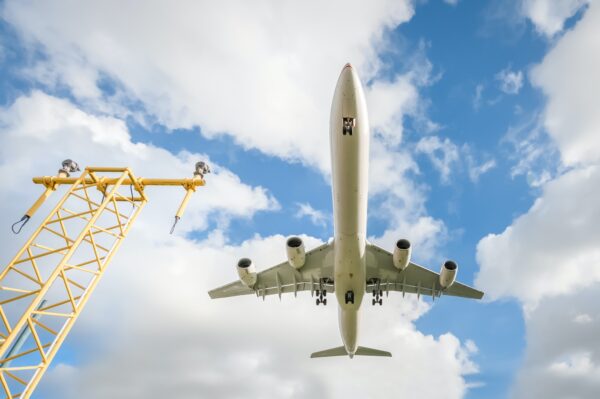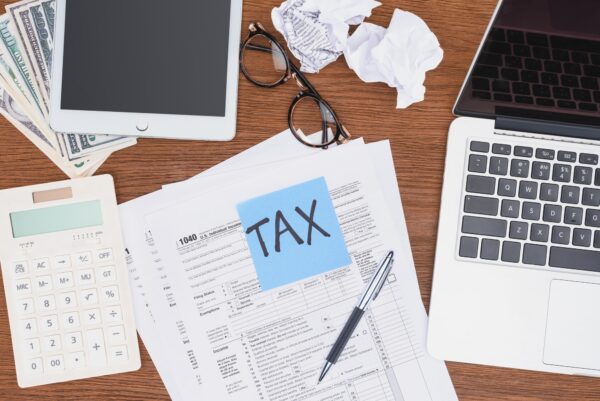Have you ever thought about starting cross-border EC in Taiwan?
Some of those who are thinking about starting cross-border EC in Taiwan may ask, “I want to start cross-border EC in Taiwan, but how much does it cost for customs duty?” Many people who are considering starting a cross-border EC business in Taiwan are often stumped by the customs duties, such as “I want to start a cross-border EC business in Taiwan, but how much does it cost?
Known for its relatively affluent lifestyle compared to other Asian countries and, above all, its pro-Japanese character, Taiwan, like its neighbor China, is expanding the size of its cross-border EC market.
However, as mentioned above, if you do not take proper measures to deal with tariffs, you may end up in big trouble later on, or your business may not go well. However, as mentioned above, if you do not take proper measures to deal with tariffs, it may cause big problems later on, or your business may go wrong.
In this issue, we will introduce in detail the customs rules for cross-border EC in Taiwan and how to avoid customs troubles for those who are thinking of starting cross-border EC in Taiwan.
目次
What is tariff in the first place?

Before we go into the details of Taiwan’s cross-border EC tariff rules, we will first introduce what tariffs are in the first place.
Meaning of tariffs
First of all, let us introduce the meaning of tariffs.
The term “tariff” means “a tax imposed on imported goods.It is a tax on goods sold when they cross a border and is collected at customs.
This means that in most cases, when transporting goods or cargo from Japan to a foreign country, a tax will be charged when crossing the border.Sometimes, if certain conditions are met, no customs duty is charged, and this is what we often hear referred to as “duty free”.
The tax rates related to customs duties are not fixed and vary depending on the country, product, and time of year to be exported.Tariffs vary depending on the quantity, weight, and time of year, even for the same item.
Purpose of tariffs
Now that you know what tariffs mean, let’s take a look at the purpose of tariffs.
The two main purposes of tariffs are “tax revenue” and “protection of domestic industry. and the protection of domestic industry.
The first is “tax revenue.
Tax revenue is money that is used to generate income for the government, specifically for the construction and repair of roads, water systems, and other public facilities that people use on a daily basis.This tax revenue is also used to pay for public services such as compulsory education, police, firefighting, and health care.
The second is “protection of domestic industry.
Tax revenues may be relatively easy to picture, but when you hear about the protection of domestic industry, it doesn’t quite ring a bell, does it?If the purchase price of products from other countries becomes too low, this will cause the value of the same products in Japan to decrease and eventually decline.
A concrete and easy-to-understand example is “beef”.High-grade Japanese beef brands such as Matsusaka beef and Yonezawa beef raised in Japan are fresh and tasty, and Japanese people love them, but the high price does not allow them to eat brand-name Wagyu beef on a daily basis.
In contrast, American beef is less expensive and tastes better than Japanese brand Wagyu beef, so it is often used in restaurants.However, if only beef produced in the U.S. is distributed in Japan, there is a danger that opportunities to eat Japanese brand Wagyu beef will be lost and demand will eventually disappear.
In order to prevent the decline of an important industry that Japan is proud of, U.S. beef must maintain a certain level of price, and tariffs exist for this reason.
Regardless of beef, imported commodities have value, and prices vary depending on the season and other factors.Because tariffs must change accordingly, tariffs are variable rather than uniform.
Thus, tariffs have an important purpose, which is why the tax rates vary.
Tariff rules in Taiwan

Next, we will introduce the rules and regulations regarding customs duties when conducting cross-border EC in Taiwan.Customs rules differ from country to country, but what kind of rules are in place in Taiwan?
If you are thinking of starting cross-border EC in Taiwan, please check it out.
Basically, it’s determined by the price of the freight.
Let us start with the basic rules of customs duties on imported goods in Taiwan.
Taiwan exempts imported goods from customs duties on imports of NT$2,000 or less.
However, not all imports of RMB 2,000 or less are exempt from duty, but only those imported up to “6 times in 6 months” are exempt from duty.
Until 2017, Taiwan exempted imported goods up to NT$3,000 or less from customs duties, but a 2018 rule revision has made the rules a bit stricter.
Incidentally, as of March 2022, NT$2,000 in Taiwan is approximately ¥8,500 in Japanese yen.
Those who have exported NT$2,000 to NT$3,000 to Taiwan in the past and thought they would be fine this time around should be especially careful.
EZ WAY 易利委”, an essential application for Taiwanese customs

We have mentioned the basic rule regarding customs duties in Taiwan, which is that if the amount is less than NT$2,000, it is exempt from customs duties. However, if you want to do cross-border e-commerce in Taiwan, there is something else you need to know in addition to these basic rules. It is about “EZ WAY 易利委”.
Below is a detailed introduction to the “EZ WAY 易利委”, an essential application for Taiwanese customs.
Apps managed by the Taiwanese government
EZ WAY 易利委 refers to an application administered by the Taiwanese government to determine the amount of shipping and customs duties on imported goods.
By entering personal information such as name, phone number, and personal number into EZ WAY 易利委, you can connect with people who have purchased imported goods from overseas and have them pay the appropriate customs duty.
A well-functioning EZ WAY 易利委 can reduce the number of people who inadvertently forget to pay customs duties or who intentionally cheat to avoid paying them.
For specific usage, you must first register with the EZ WAY 易利委 in advance.
After purchasing goods from overseas via cross-border e-commerce, enter detailed information on the EZ WAY 易利委, including the items purchased and the date of purchase. You will then be notified of the appropriate customs duty, and you will make payment as soon as possible.
Once the procedure is completed, delivery will be arranged and if payment is delayed, the goods may not be delivered.
New rules from July 2022
The above is a rough outline of the EZ WAY 易利委, which is a bit cumbersome for both sellers and buyers, but it is unavoidable due to national rules.However, to add to the hassle, a new rule has been established.
The EZ WAY is a system that allows customers who purchase cargo from overseas to receive it only if they register with the EZ WAY Yili Committee.
This is a new rule, effective July 2022, that requires that an application be filed within seven days of the purchase of the shipment, or the goods will be forcibly returned to the seller.
The buyer may feel that it is very time-consuming to have to promptly make an application in addition to the higher price of just purchasing from overseas.
Those who are thinking of starting cross-border EC in Taiwan should pay close attention to this new rule.
How to avoid customs problems?

Above, we introduced the rules regarding customs duties when conducting cross-border EC in Taiwan.
Knowing the rules regarding tariffs in Taiwan, some people may think that it may be difficult to conduct cross-border EC in Taiwan. However, Taiwanese people, many of whom are pro-Japanese and have good relations with Japan, are looking for high-quality products made in Japan.
The following is a guide on how to avoid tariff problems when conducting cross-border EC in Taiwan. If you are interested in avoiding tariff problems and smoothly conducting cross-border EC in Taiwan, please refer to this section.
Reduce the price of products or sell low-priced products
The first way to avoid customs problems is to lower the price of goods or sell low-priced goods.
The first method is to take advantage of the tax-free nature of goods under RMB 2,000 and lower the selling price accordingly.
Another effective approach is to develop a strategy of selling products priced at 2,000 yuan or less from the beginning. Since the price will be approximately 8,500 Japanese yen, it will be difficult to sell electrical appliances such as home electronics.
It is quite possible to keep the price within NT$2,000 for daily necessities, baby products, and foodstuffs, which are relatively popular among overseas customers. If you want to avoid customs troubles, why not try to devise a price for the product itself?
Pre-registration of the application is encouraged.
The next best way to avoid customs problems is to encourage people to register their applications in advance.If the customer does not make an application from the EZ WAY 易利委, the customer will not receive the goods, and if the customer makes a purchase but does not make an application, the customer must return the goods.
This would be a major blow to the seller, as the seller would have to bear the shipping costs.
Therefore, by encouraging customers to acquire and register for the EZ WAY 易利委 application just before or at the same time as the purchase of a product, it is possible to deliver products to customers without problems.
If you are interested in avoiding customs troubles, we recommend that you encourage your clients to obtain and register for the EZ WAY 易利委 app in advance.
summary
We hope you found this detailed introduction on customs rules for cross-border e-commerce in Taiwan and how to avoid customs problems helpful.
Taiwan has slightly stricter tariff rules than other countries, but if you understand how it works and take measures, there is no problem at all.
If you are thinking of starting cross-border EC in Taiwan, please refer to this article.
















